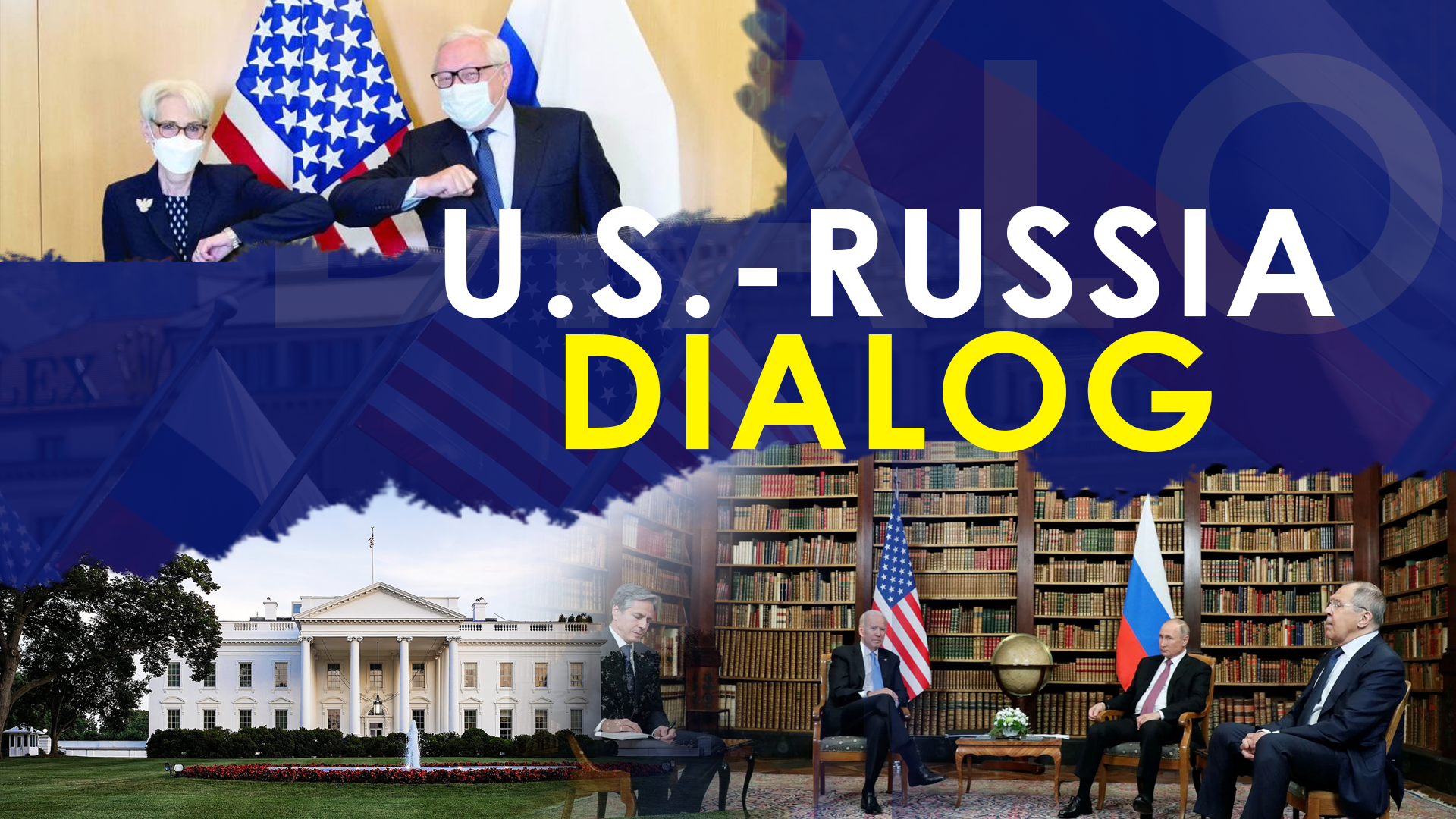
Such tit for tat actions, such as the constant closures of diplomatic missions or expulsion of diplomats, have made it difficult to conduct basic bilateral diplomacy.
The lack of proper diplomatic contact between the two rivals has increased the risk of miscalculation, which could lead to a potential disaster.
Recently, Russia's top diplomat, Foreign Minister Sergei Lavrov, warned that tensions between Washington and Moscow were close to spiraling into a dangerous confrontation.
The two sides both say they want to prevent any such scenario.
This week diplomats from the US and Russia sat down for talks on strategic stability. The talks in Geneva were arranged in June when US President Joe Biden met his Russian counterpart, Vladimir Putin.
Moscow and Washington have deep seated differences over a host of issues, including the situation in Ukraine, arms control, human rights, and cybersecurity.
Observers believe such differences are rooted in the geopolitical rivalry between the two major nuclear armed states.
I think that what's happened in the last 20 years under Putin's basic leadership, I think for the last 20 years, has been a resurgence of Russian power, of Russian technology, of the place of Russia in the world. And, as a major country, the United States doesn't like that.
Frank Emspak, Professor Emeritus, University of Wisconsin
Can the ongoing diplomatic efforts help reduce tensions and pave the way for cooperation?
The meeting on Wednesday was the first in a series of planned talks aimed at enhancing communication and reducing the possibility of missteps.
The delegations were headed by US Deputy Secretary of State, Wendy Sherman, and the Russian Deputy Foreign Minister, Sergei Ryabkov.
The discussion was described by the US side as having been professional and substantive.
The Russians said they were satisfied with the conclusions and that America showed readiness for constructive dialogue.
But, despite the positive signs, controversial comments by the US President drew condemnation from Moscow.
In an address to national intelligence officers, Joe Biden accused Russia of trying to interfere in the 2022 US midterm elections.
He warned that an escalation in cyber attacks could lead to war. Biden also said Russia has nuclear weapons and oil wells, and nothing else to earn money from. The US president claimed this economic weakness makes Russia even more unpredictable and dangerous.
The Russians were quick to respond. The Kremlin said the statements by Biden showed America's erroneous understanding of modern Russia.
Kremlin spokesperson, Dmitry Peskov, said Moscow regrets that America is more of an adversary than a partner, despite the Russian government showing the political will to normalize ties.
Observers believe the latest exchanges further reveal the depth of distrust and deep differences between Washington and Moscow.
Russians have begun to reassert their normal geographic dominance in the area, and in particular, this was true with Ukraine. And, you know, ... can you imagine the situation If the Russians had on the Canadian border, you know, an army? We would freak out. Well, the Russians feel the same way about NATO being in the middle of Europe now, and they felt very very betrayed by the fact that NATO expanded, because they felt they had a deal in the 1980s with Gorbachev that that wouldn't happen. And so they are upset about that, I've been very clear about that.
Frank Emspak, Professor Emeritus, University of Wisconsin
Problems that have soured bilateral relations are many and both sides seem unwilling to back down when it comes to strategic issues.
The upcoming talks will probably show whether the two sides are serious enough to resolve their problems.


No comments:
Post a Comment